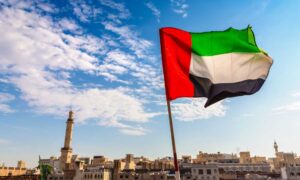South Asians constitute a significant majority of the expatriate population in the UAE, bringing unique health challenges that require specialized attention. Managing their health effectively involves understanding these challenges, which differ markedly from those of other demographic groups.
Cardiovascular Risk Among South Asians
Studies consistently show that South Asians are at a higher risk of cardiovascular diseases compared to other populations. This risk is notably elevated among expatriates living in the UAE. Factors such as genetic predispositions combined with lifestyle choices contribute to this heightened risk. Heart attacks, in particular, have been reported to be rising among South Asians in the region, underscoring the critical need for tailored health strategies.
The Skinny Fat Phenomenon and Visceral Fat
Despite often having a normal Body Mass Index (BMI), South Asians frequently exhibit high levels of visceral fat—a dangerous type of fat that surrounds organs and increases the risk of various health conditions including heart disease, Alzheimer’s, and cancer. This phenomenon, known colloquially as “skinny fat,” highlights the inadequacy of BMI as a sole indicator of health in this population.
Type 2 Diabetes and Lifestyle Factors
South Asians also face an increased risk of developing type 2 diabetes, especially with weight gain. However, studies indicate that lifestyle modifications can significantly mitigate this risk. Adopting healthier eating habits, engaging in regular physical activity, and integrating preventive healthcare measures can help prevent and even reverse type 2 diabetes development.
Tailored Health Strategies
Integrative Approaches to Health
Dr. Aarti Javeri-Mehta, a prominent Dubai-based Internal Medicine Specialist and Lifestyle Medicine Physician, advocates for Lifestyle Medicine and precision prevention tailored to South Asians. Recognizing the importance of cultural identity, Dr. Javeri-Mehta emphasizes the need for personalized health approaches that integrate traditional practices with modern medical advancements.
Dietary Recommendations for South Asians
South Asian cuisine is renowned for its rich flavors and variety, often centered around ingredients like rice, lentils, and ghee. While delicious, these staples can contribute to health issues due to their high content of simple carbohydrates and saturated fats. Dr. Javeri-Mehta suggests enriching and diversifying the South Asian diet by incorporating healthier alternatives such as whole grains (e.g., brown rice, quinoa), healthier fats (e.g., olive oil instead of ghee), and increased consumption of vegetables and legumes. This not only enhances nutritional value but also supports better health outcomes.
The Role of Traditional Spices
Traditional Indian spices such as turmeric, cumin, and fenugreek offer not only culinary richness but also significant health benefits. Turmeric, containing curcumin, exhibits potent anti-inflammatory and antioxidant properties. Cumin aids digestion, while fenugreek helps regulate blood sugar levels—a crucial benefit for preventing diabetes. Dr. Javeri-Mehta underscores the importance of incorporating these spices into daily meals to promote overall wellness while preserving cultural culinary traditions.
Physical Activity and Cultural Engagement
Finding Joy in Movement
Physical activity is integral to maintaining good health among South Asians in the UAE. Dr. Javeri-Mehta encourages finding enjoyable ways to stay active, whether through traditional dances like Kathak and Bhangra or modern fitness activities like Zumba. Emphasizing enjoyment in physical activities ensures sustained engagement, crucial for long-term health benefits.
Cultural Engagement for Emotional Well-being
Beyond physical health, cultural engagement plays a vital role in emotional well-being for South Asian expatriates. Participating in cultural festivals and activities not only fosters a sense of community but also helps individuals maintain a strong connection to their cultural roots amid the expatriate lifestyle in the UAE.
Conclusion
Addressing the health needs of South Asians in the UAE requires a nuanced understanding of their unique challenges and preferences. Dr. Aarti Javeri-Mehta’s insights into Lifestyle Medicine underscore the importance of personalized health strategies that integrate cultural identity with modern healthcare practices. By adopting healthier dietary habits, engaging in regular physical activity, and participating in cultural activities, South Asians can enjoy a vibrant and healthy lifestyle while residing in the UAE.





















